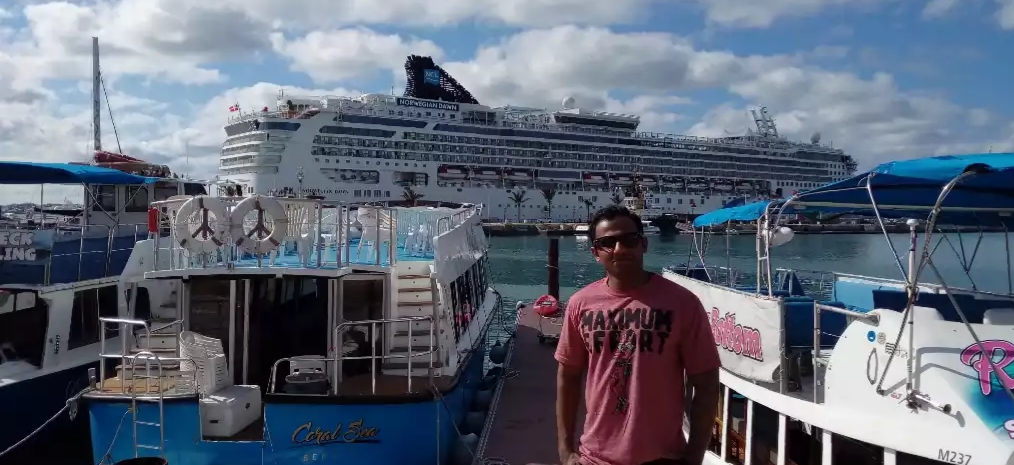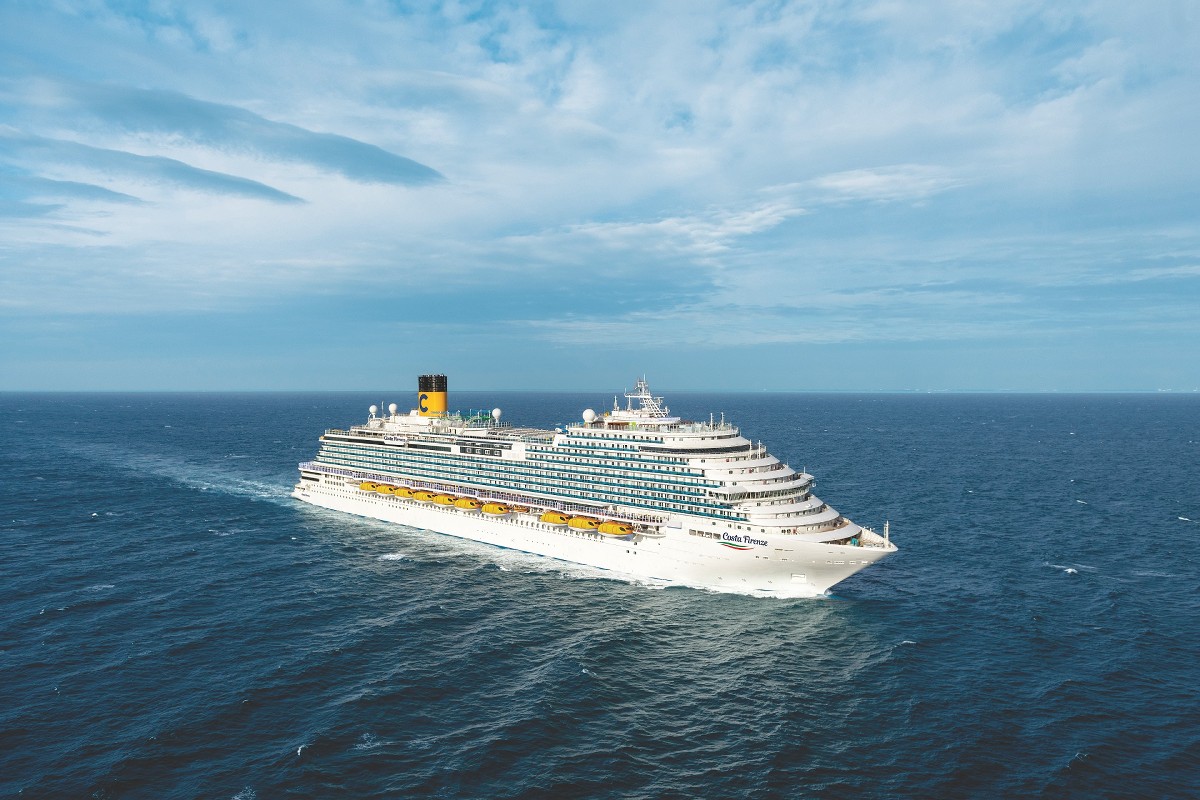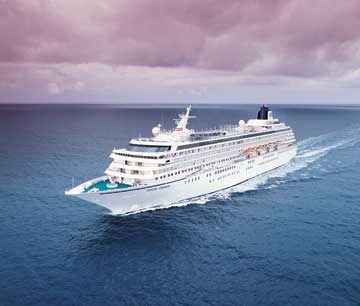
Recent articles have focused on environmental issues surrounding cruise ships. These concerns include pollution of Venice's waters, norovirus outbreaks, and air pollution by cruise ships. This article will cover some of the problems associated with cruise tourism and provide solutions that can reduce the environmental impact. A discussion on the effects of cruise tourism in Venice is also included.
Norovirus outbreaks on cruise ships
The CDC is closely monitoring recent Norovirus epidemics on cruise ships. The disease can be spread by contaminated water, food and surfaces. It is very difficult to treat with antibiotics. The disease is also resistant to chlorine extremes and temperature extremes. Many blame the infected crewmember, but they are often not the cause.
The number of outbreaks per ship varies depending on the type of cruise ship. The risk of becoming infected is higher during the peak season (April/May). From April to July there were 43 outbreaks, with the highest reported attack rates for crew members and passengers.

Cruise ships cause pollution
Coast communities and the environment are at grave risk from pollution by cruise ships. Although smaller in size than cruise ships, they can generate large amounts of pollutants. One estimate states that large cruise ships can produce as much as 210,000 gallons sewage and 1 million gallons graywater per week. They also generate about eight tons of solid waste and 25,000 gallons of oily bilge water. Environmental groups worry that laws regarding pollution from cruise ships are not adequate.
The European air pollution problem is often blamed on Europe's diesel fleet, but cruise ships actually make it worse. Cruise ships cause as much pollution as some countries' national car fleets. Cruise ships in Denmark emit more NOX than half the passengers cars.
Pollution of Venice's water
It is now taking steps to reduce the pollution caused by cruise ships in Venice's waters. The pollution caused by these ships is a major concern, accounting for 14 to 15 percent of the local air pollution. Although engineers are currently working on a plan that would plug cruise ships into the electric grid and shut down their engines at port, this plan is still many years away. Activists have called for a meeting with Italy's Government to address this issue.
The waters surrounding Venice are contaminated by industrial activity, and by the waste from shipping. The water coming from the canals is contaminated by heavy metals. Additionally, the city's canals are clogged with chemicals. It's not a good idea if you plan to swim in the water. The water in the city is full of chemicals that could lead to illness.

Cruise tourism's environmental impact
Local communities are both affected by the cruise industry in positive and negative ways. It increases the number and use of vehicles and power plants. It also has an impact on local ecosystems. A cruise ship may produce 50 swimming pools worth of highly polluted trash. It creates jobs and supports a region's economy.
Not only does cruise tourism have positive economic impacts, but it also creates jobs and purchases goods and services that contribute to local economies. Cruise tourism increased 14% in 2008 compared to 2008. The last two seasons have seen growth even higher than in 2008. For many years, this trend has been upward.
FAQ
Are cruises good for vacations?
You have the best vacations when you aren't thinking about anything other than relaxing and having fun. A cruise is the perfect vacation!
Is a cruise boat all-inclusive or not?
Because they don't offer meals for people with special dietary requirements, cruise ships aren't all-inclusive. There is no room service, laundry service, or other amenities like spas, pools, gyms, etc.
Some cruise lines do offer "all-inclusive" deals that cover all aspects of the trip, including alcohol. These packages generally include airfare, hotel accommodations or entertainment.
Is food allowed on a cruise?
The answer is yes All cruises offer complimentary food. To enjoy these drinks, however, you will need beverages to purchase.
Costs will vary depending on which type of ship you are sailing. For example, for a cruise on a luxury vessel, you might pay $20-30 per drink. For a smaller vessel, the cost of a drink will be around $10-15 per person.
Do I have to tip my Cruise Director
This is dependent on the cruise line. Some cruise directors do receive tips while some don't. The best way to find out if you need to tip your Cruise Director is to ask them when you board the ship. They will usually tell you if they expect tips.
Why are cruise vacations so popular?
Cruises have become increasingly popular because they offer an exciting vacation experience for people who want to travel but don't want to deal with airport delays and long flights. They also provide a relaxing atmosphere where passengers can enjoy themselves without worrying about schedules and other details of daily life.
Also, cruise ships make it easy to visit different locations on land or at sea. They have plenty of time to explore all the attractions and sights in each destination.
Statistics
- If you're traveling alone, you may also need to factor in a single supplement, adding up to as much as 100% of the cruise fare. (travel.usnews.com)
- You'll need to budget around $80 per person per day for this option – and an additional 18% gratuity. (travel.usnews.com)
- The line estimates savings of 50% when you purchase this bundle. (travel.usnews.com)
- You can save 15% off the total price if you book in advance of your trip. (travel.usnews.com)
External Links
How To
How do you plan your first Cruise?
Planning a cruise is just like any other trip. You need to take into account many factors such as budgeting, where to go and activities. You should be aware that there are important differences in the planning of your first cruise, especially if this is your first time. Cruises usually last for three weeks longer than land vacations, so make sure you leave nothing out. These tips will help you make your cruise even more enjoyable.
-
Book at least six months prior to departure. This allows you to save money and avoid crowds. Plus, you'll have plenty of time to research the ship, itinerary, ports, and activities. You may even be able to find a bargain on airfare.
-
You can choose a destination. Many reasons people enjoy cruising to different places. Some enjoy exploring cities while others prefer relaxing on board. Whatever you prefer, keep in mind your destination preference. A popular choice is a Caribbean island, followed closely by Europe and Alaska.
-
Booking a Suite is a good option if money is not an issue. Suites provide extra space and a private balcony as well as additional amenities. They are usually available from $100-$300 per night, depending on the size of your room and the availability of suites during your sailing date.
-
Check the weather forecast. Cruising can often be associated with warm tropical environments. You should also check the weather forecasts of the ports on the day you plan to visit them. The ocean is unpredictable, especially in places like Alaska or Antarctica, so it's best to know how bad the weather could potentially be before booking your cruise.
-
Take only 10 things on your cruise. This means that you don't need to pack a lot of clothes and shoes in your suitcase. It's better to pack only what you actually need in small bags. Consider layering clothing since you won't always have access to laundries onboard.
-
Do your research - Read online reviews before buying tickets. Make sure you understand the pricing policies, what services they provide, and whether their cancellation policy makes sense for you.
-
Do not miss these must see spots. Visit each port at minimum once. Every location has its own charm and culture so make sure you visit all of them.